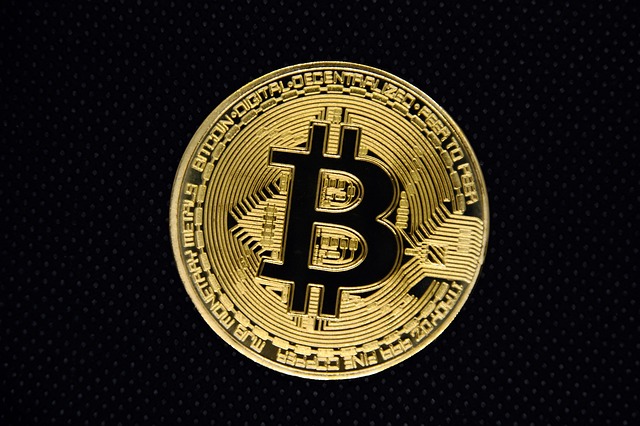DeFi Platforms: A Closer Look at the Ecosystem
DeFi Platforms: A Closer Look at the Ecosystem

Decentralized Finance: An In-Depth Analysis
Decentralized finance, often referred to as DeFi, has emerged as a rapidly growing sector within the realm of blockchain technology. It aims to revolutionize traditional financial systems by providing decentralized alternatives to intermediaries like banks and financial institutions. Unlike centralized finance, which relies on trusted third parties to facilitate transactions and enforce contracts, DeFi operates on a peer-to-peer basis, utilizing smart contracts to automate and validate transactions. This technology-driven approach has the potential to democratize access to financial services, allowing individuals from all corners of the world to participate in a decentralized and inclusive financial ecosystem.
One of the key features of DeFi platforms is their ability to provide users with greater financial autonomy and control. Through these platforms, individuals can participate in various financial activities, such as lending, borrowing, trading, and earning interest on their digital assets, all without the need for intermediaries. By eliminating the reliance on traditional financial institutions, DeFi offers a level playing field where anyone with an internet connection can engage in financial activities on their own terms. This open and permissionless nature of DeFi not only empowers individuals but also removes barriers to entry, particularly for those in underserved communities who may have limited access to traditional financial services.
Understanding the DeFi Ecosystem
The DeFi ecosystem is a rapidly evolving landscape in the world of finance. It is a decentralized network where various financial services and applications are built on blockchain technology. Unlike traditional centralized systems, DeFi removes the need for intermediaries, such as banks or brokers, allowing individuals to have direct control over their assets and transactions.
One of the key aspects of the DeFi ecosystem is the use of smart contracts. These self-executing contracts are coded to automatically enforce the terms and conditions agreed upon by the parties involved. This eliminates the need for trust in intermediaries, as the execution of these contracts is governed by pre-defined rules and cannot be altered. Smart contracts make transactions on the DeFi platforms secure and transparent, fostering trust among participants.
The Rise of Decentralized Finance
The rise of decentralized finance, also known as DeFi, has been nothing short of remarkable. In recent years, this innovative approach to finance has gained significant traction, challenging traditional centralized financial systems. What makes DeFi unique is its utilization of blockchain technology and smart contracts to provide financial services in a decentralized manner.
One of the key factors contributing to the rise of DeFi is its ability to provide financial services to individuals who may not have access to traditional banking systems. With DeFi, anyone with an internet connection can participate and benefit from various financial opportunities such as lending, borrowing, and trading. This inclusivity has democratized finance and empowered individuals to take control of their financial future. Additionally, DeFi platforms often operate with lower fees compared to traditional financial institutions, making it more attractive to users seeking cost-effective solutions.
The rise of DeFi has spurred a wave of innovation in the financial industry. As more developers and entrepreneurs explore the possibilities of DeFi, we can expect to see the development of new and exciting applications that revolutionize how we interact with money and financial services. However, it is important to note that despite its potential, DeFi is still an emerging industry, and there are challenges and limitations that need to be addressed. In the following sections, we will delve deeper into the core features of DeFi platforms, the benefits of participating in DeFi, and the challenges it faces.
Exploring the Core Features of DeFi Platforms
Decentralized Finance (DeFi) platforms offer a wide range of core features that make them unique and attractive to users. One of the key features is the ability to access financial services without the need for intermediaries. Unlike traditional financial systems where banks or other financial institutions play a central role, DeFi platforms leverage blockchain technology to establish direct peer-to-peer transactions. This eliminates the need for intermediaries such as banks and enables users to have full control over their assets.
Another important feature of DeFi platforms is the transparency they provide. Through the use of smart contracts, all transactions on the platform are recorded on the blockchain and can be easily audited by anyone.

In addition to these features, DeFi platforms also provide users with greater accessibility. Since these platforms operate on a global scale and are not restricted by geographic boundaries, anyone with an internet connection can participate. This opens up opportunities for individuals who are unbanked or underbanked to access financial services that were previously unavailable to them. Furthermore, the open nature of DeFi platforms encourages innovation, as developers from all over the world can build and contribute to the ecosystem, continually enhancing the functionalities of these platforms.
The Benefits of Participating in DeFi
Participating in decentralized finance (DeFi) offers numerous benefits that cannot be overlooked. Firstly, DeFi platforms enable users to have complete control over their financial assets. Unlike traditional centralized systems, where intermediaries have control over users’ funds, DeFi allows individuals to be the sole custodians of their assets. This level of control empowers users to manage their finances as they see fit, eliminating the need to rely on third parties for transactions or financial decisions.
Secondly, DeFi provides greater accessibility for individuals who are unbanked or underbanked. In many parts of the world, a significant portion of the population lacks access to traditional banking services. However, with DeFi, anyone with a smartphone and internet connection can participate in financial activities. This inclusivity helps to bridge the gap between the banked and unbanked, giving individuals in underserved communities the opportunity to access financial services and improve their economic situation.
The benefits of participating in DeFi extend far beyond these two key advantages. By embracing decentralized finance, individuals gain the potential for increased financial privacy, reduced transaction costs, and a more transparent financial system. Furthermore, DeFi opens up opportunities for innovation and new financial products that were previously inaccessible. As the DeFi ecosystem continues to expand and evolve, it is crucial for individuals and businesses to explore the various benefits it offers and consider how they can leverage these advantages to enhance their financial well-being.
A Look into the Various Types of DeFi Applications
Decentralized Finance (DeFi) has revolutionized the world of finance by offering a wide range of applications that provide financial services in a decentralized manner. Within the DeFi ecosystem, there are various types of applications that cater to different needs and preferences. One popular type of DeFi application is decentralized exchanges (DEXs).

Another type of DeFi application is decentralized lending and borrowing platforms. These platforms enable users to lend their digital assets to earn interest or borrow assets by providing collateral. The lending and borrowing process is facilitated by smart contracts, which automatically execute transactions based on predetermined conditions. This eliminates the need for traditional banks or financial institutions, making lending and borrowing more accessible and efficient. Additionally, decentralized lending and borrowing platforms often offer more competitive interest rates compared to traditional financial institutions.
The Role of Smart Contracts in DeFi Platforms
Smart contracts play a crucial role in the operation of decentralized finance platforms. These digital agreements are self-executing and operate based on predefined terms and conditions. They are coded on blockchain networks, ensuring their integrity and immutability. By removing the need for intermediaries, smart contracts enable DeFi platforms to function autonomously and securely.
One of the key advantages of smart contracts in DeFi is their ability to automate various financial processes. Through these contracts, users can execute transactions, lend and borrow funds, and participate in other financial activities without the need for trust in a centralized party. The code of the smart contract defines the rules and conditions for these activities, ensuring fair and transparent outcomes. Furthermore, the decentralized nature of smart contracts makes them resistant to censorship and fraud, providing users with a level of security and reliability that traditional centralized systems often lack.
The Importance of Security in DeFi
In the world of decentralized finance (DeFi), security plays a paramount role. With the rising popularity and adoption of DeFi platforms, the need for robust security measures cannot be ignored. While the decentralization aspect brings transparency and openness to the financial ecosystem, it also introduces new challenges and risks that need to be addressed to ensure the safety of user funds.
One of the key aspects of security in DeFi platforms is the use of smart contracts. These self-executing contracts are the building blocks of DeFi applications, automating various financial transactions and eliminating the need for intermediary intermediaries. However, the complexity and nature of smart contracts also make them vulnerable to security exploits. Any vulnerability in the code can be exploited by malicious actors, leading to financial losses. Therefore, thorough code audits, regular security testing, and open-source development practices are essential to mitigate these risks and protect user funds.
• Thorough code audits: Regularly reviewing and analyzing the smart contract code can help identify any potential vulnerabilities or weaknesses that could be exploited by attackers.
• Regular security testing: Conducting regular security tests, such as penetration testing and vulnerability assessments, can help identify any existing vulnerabilities in the system and address them promptly.
• Open-source development practices: Embracing open-source development practices allows for transparency and collaboration among developers, making it easier to spot and fix any security issues.
• Multi-signature wallets: Implementing multi-signature wallets adds an extra layer of security by requiring multiple signatures from different parties to authorize transactions, reducing the risk of unauthorized access to user funds.
• Insurance coverage: Some DeFi platforms offer insurance coverage for user funds, providing an additional layer of protection against financial losses due to hacks or exploits.
• Community-driven governance: Involving the community in decision-making processes related to platform security can help ensure that best practices are followed and potential risks are addressed collectively.
Examining the Challenges and Limitations of DeFi
While decentralized finance (DeFi) holds immense potential, it is not without its fair share of challenges and limitations. One of the major obstacles facing the DeFi ecosystem is scalability. As more users and applications join the network, the demand for processing power increases, resulting in slower transaction times and higher fees. This presents a bottleneck that hinders the mainstream adoption of DeFi, as users may find it impractical to engage with platforms that cannot handle large volumes of transactions efficiently.
Moreover, security vulnerabilities pose a significant threat to the DeFi space. Traditional financial systems have the advantage of centralized entities that can implement security measures and respond swiftly to breaches. However, in DeFi, where the power is decentralized, maintaining a robust security infrastructure becomes increasingly complex. Smart contracts, although designed to automate transactions and eliminate intermediaries, can be exploited by hackers if not carefully audited and properly secured. Instances of hacks and smart contract vulnerabilities in the past have highlighted the need for stringent security protocols to safeguard user funds and maintain the integrity of the DeFi ecosystem. As the industry evolves, addressing these challenges will be crucial to ensure the scalability, security, and long-term success of decentralized finance.
The Future of DeFi: Trends and Predictions
The future of Decentralized Finance (DeFi) is full of exciting trends and predictions. One major trend that is expected to continue is the growth of decentralized exchanges (DEXs). These platforms have gained popularity due to their ability to provide users with more control and privacy over their financial transactions. As more people become aware of the benefits of decentralized exchanges, we can expect to see an increase in their usage and the development of new and innovative DEXs.
Another trend to watch out for in the future of DeFi is the integration of artificial intelligence (AI) and machine learning (ML). These technologies have the potential to revolutionize the way we interact with financial systems. By leveraging AI and ML, DeFi platforms can improve risk assessment, enhance user experience, and automate various processes. This integration will not only make DeFi more efficient but also increase its accessibility to a wider audience. As AI and ML continue to advance, we can expect to see DeFi platforms incorporating these technologies to provide a more seamless and personalized experience for users.
What is decentralized finance (DeFi)?
Decentralized finance, or DeFi, refers to a system of financial applications and platforms that operate on blockchain technology. It aims to remove intermediaries and provide open financial services to anyone with an internet connection.
How does the DeFi ecosystem work?
The DeFi ecosystem consists of various decentralized applications (DApps) that offer financial services such as lending, borrowing, trading, and investing. These DApps utilize smart contracts, which are self-executing contracts with the terms of the agreement directly written into code.
Why has decentralized finance seen a surge in popularity?
Decentralized finance has gained popularity due to its potential to provide financial services efficiently and transparently. It also allows for greater financial inclusion, as anyone with an internet connection can access these services without relying on traditional banks or intermediaries.
What are the core features of DeFi platforms?
DeFi platforms typically offer features such as decentralized lending and borrowing, decentralized exchanges, yield farming, and liquidity pooling. These features allow users to earn interest on their crypto assets, trade tokens directly with others, and participate in various investment opportunities.
What are the benefits of participating in DeFi?
Participating in DeFi can provide users with the ability to earn passive income through lending or liquidity provision, access to a wide range of financial services without relying on traditional banks, and complete control over their funds since they are stored in decentralized wallets.
What are the different types of DeFi applications?
There are various types of DeFi applications, including decentralized exchanges (DEXs), decentralized lending platforms, stablecoins, prediction markets, and yield farming platforms.

How do smart contracts play a role in DeFi platforms?
Smart contracts are the backbone of DeFi platforms. They facilitate the automatic execution of transactions and agreements without the need for intermediaries. Smart contracts ensure that the terms of a transaction are met before any funds are exchanged, increasing security and efficiency.
Why is security important in DeFi?
Security is crucial in DeFi because the ecosystem involves handling large amounts of value and sensitive financial information. Without proper security measures, users’ funds and personal data could be at risk of theft or hacking. Strong security protocols help protect against such risks.
What are the challenges and limitations of DeFi?
Some challenges and limitations of DeFi include scalability issues, high transaction fees, regulatory uncertainties, and the potential for smart contract vulnerabilities. These factors can hinder the widespread adoption and development of DeFi.
What are the trends and predictions for the future of DeFi?
The future of DeFi is expected to see increased innovation, improved scalability, and enhanced user experience. We can anticipate the integration of traditional financial services with DeFi, the rise of cross-chain interoperability, and the emergence of more user-friendly interfaces and applications.
Todays Featured Product:
Buy, exchange and grow your crypto securely with a Ledger hardware wallet, combined with the Ledger Live app. It’s never been easier to keep your crypto safe and accessible. Buy direct from Ledger.com and get todays Special Offers Here.




